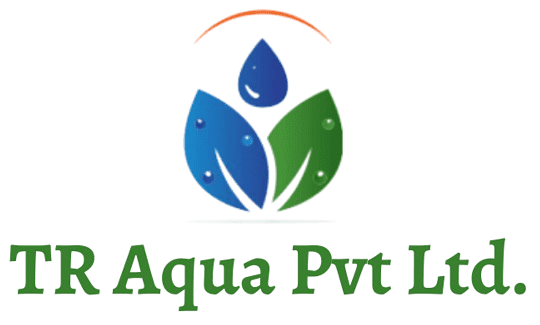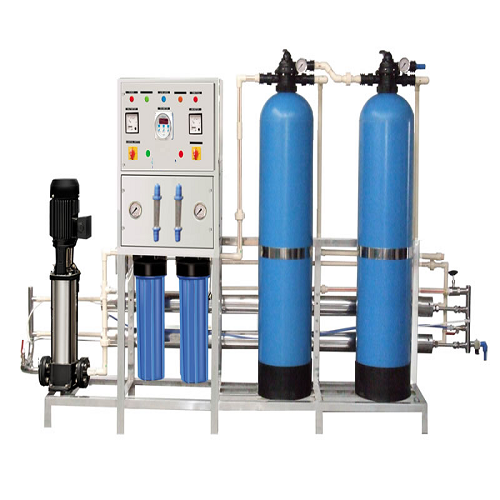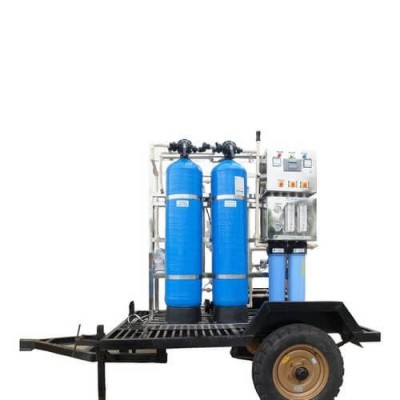Top 10 RO Plant Suppliers in India
RO Plant Manufacturer
In India, access to clean and safe drinking water remains a significant concern, especially with the rising pollution and depletion of natural water resources.This requirement of clean water has increased significantly over time as awareness of safe and clean water has reached to the deepest corners of India. To fulfil this need, one of the efficient ways of water purification is the Reverse Osmosis method, which is concise in size , small, easily installed and managed. So if you are looking for RO plant supplier,manufacturer and seller here’s the list of top 10 commercial RO plant manufacturers in India. In this blog, we’ll highlight the top 10 RO plant suppliers in India and showcase our company, TR Aqua Pvt. Ltd., as a trusted name in the industry for delivering superior water purification systems.
Also Read Us: LPH in RO Water Purifier
1. TR Aqua Pvt. Ltd.
TR Aqua Pvt. Ltd. is a Noida-based firm dealing in commercial RO plant and other water purification for industries, hospitals, Educational Institutions, Water Businesses, hotels, and so on. It is also involved in wastewater treatment with ace machines like Effluent treatment plant, sewage treatment plant.
We are a leading supplier of innovative and reliable RO plants in India, serving both residential and industrial sectors. With years of expertise in water purification, TR Aqua is known for providing high-quality and cost-effective solutions to meet a wide range of water treatment needs. Our RO plants are equipped with advanced filtration technology, ensuring 100% pure and safe water.
We cater to a variety of customers, from individual households to large-scale industries, providing customized solutions that meet specific water quality requirements. With a commitment to excellence and customer satisfaction, TR Aqua Pvt. Ltd. stands as a top choice for RO plant solutions across India.
Key Features of TR Aqua Pvt. Ltd.:
- Custom-designed RO plants for industrial and residential use
- Advanced filtration technology (RO, UV, UF)
- Efficient after-sales support and maintenance services
- Cost-effective and energy-efficient systems
2. R&J wastewater treatment Organization
R&J wastewater treatment Organization is one of the most well-established names in the water purification industry in India. Known for their cutting-edge technology, R&J treatment offers a range of domestic, commercial, and industrial RO systems. They are recognized for their high-quality products, excellent after-sales service, and innovative designs.
3. Aqualight
Aqualight, a brand under Eureka Forbes, is another leading supplier in the Indian market. With a strong reputation for delivering high-quality RO systems, Aqualight’s products are designed to meet diverse needs, from household RO systems to large-scale water purification setups.
4. Pure Water
Pure Water, a subsidiary of Hindustan Unilever, offers RO systems that are widely trusted across India for their efficiency and affordability. They provide a variety of RO models suitable for both domestic and commercial use. Pure Water is known for its innovative technology and easy-to-use water purifiers.
5. Unistar Aquatech Pvt. Ltd.
Unistar Aquatech Pvt. Ltd. is a prominent player in the water purification industry, offering top-notch RO plants for both industrial and residential applications. With their expertise in air conditioning and refrigeration, Unistar Aquatech Pvt. Ltd. has extended its expertise to high-performance water treatment systems.
6. Live pure
Live pure is a well-known brand in India, providing a wide range of RO systems for both domestic and commercial use. The company is known for its cutting-edge filtration technology and user-friendly designs, ensuring a steady supply of pure water.
7. Freshit
Freshit has gained a solid reputation for offering affordable and efficient RO water purifiers. Whether you need a domestic RO plant or a commercial-grade system, Aqua Fresh provides reliable water purification solutions at competitive prices.
8. Vintage Aqua
Vintage Aqua offers highly efficient and industrial-grade RO plants that are perfect for large-scale operations. Their solutions cater to a variety of industries and provide long-lasting performance with minimal maintenance.
9. Shree Vishnu
Shree Vishnu is a leading supplier of water treatment plants, offering both domestic and industrial RO systems. Their products are designed with cutting-edge technology and are known for their robustness and reliability. Shree Vishnu’s commitment to providing clean water solutions makes them a trusted name in the industry.
10. Swachh Jal
Swachh Jal provides high-quality RO water treatment systems for both domestic and industrial use. Their commitment to providing innovative and sustainable water purification solutions has earned them a strong position in the market.
Why Choose TR Aqua Pvt. Ltd.?
While the aforementioned suppliers are some of the best in the industry, TR Aqua Pvt. Ltd. stands out for its unparalleled commitment to quality, customer satisfaction, and customized solutions. Our dedication to providing the most advanced RO technology ensures that your water treatment needs are always met efficiently and effectively.
Whether you require a compact home RO purifier or a large-scale industrial system, TR Aqua Pvt. Ltd. offers products that are durable, energy-efficient, and affordable. Our expert team works closely with customers to understand their unique water purification requirements, ensuring that each RO plant is designed and installed to deliver optimal performance.
Key Advantages of Choosing TR Aqua Pvt. Ltd.:
- Expertise in both residential and industrial RO systems
- Customizable water treatment solutions for diverse industries
- Cutting-edge technology for maximum water purification
- Comprehensive service and support, including installation and maintenance
- Affordable pricing and long-term solutions
Conclusion
Choosing the right RO plant supplier is essential for ensuring safe, pure, and clean drinking water. Whether you’re looking for a domestic RO purifier or an industrial-scale water treatment solution, the companies mentioned above, including TR Aqua Pvt. Ltd., offer some of the best products in the market. We focus on delivering best quality RO plant manufacturing, installation and other related services to our existing and potential clients. Our ability to deliver excellence at minimum possible cost has turned out to be our key concern. We put the best pricing strategy under eminent guidance of experienced professionals to minimize cost and maximize productivity.
We are dedicated to providing high-quality, reliable, and cost-effective RO systems that cater to your specific needs. If you are looking for a trusted supplier of advanced water treatment solutions, look no further than TR Aqua Pvt. Ltd., where your water purification needs are our priority.


